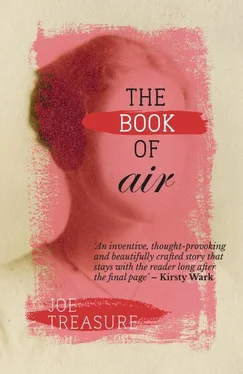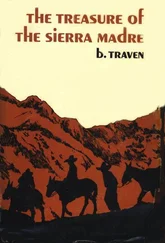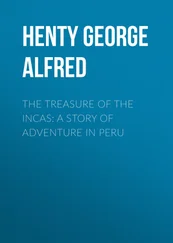Then the Elmbridge Cult was lost in a blizzard of fresh news – a mystery virus causing panic across the south east. The reporters knew it was a mystery. They could sense the panic. They could more or less count the dead. Beyond that they knew nothing. The virus had been brought into the country by migrant farm workers. It had been spread by asylum seekers released from a detention centre near Dover. It had mutated in the intestines of an ibex goat smuggled into the east end for religious purposes. A leaked document from the Ministry of Defence allowed some smart investigative journalist to make the link between the Elmbridge suicide cult, government zoologist Dr Troy Phelps and a top secret research project. But factions remained loyal to earlier theories, or cohered around later ones, however mystical or bizarre.
Meanwhile the view from our flat over Blackfriars Bridge was transformed from one day to the next like a film fast-forwarding through seasons of change. Like waking up to snow, we saw one morning the bus stops abandoned and the roads clogged with cyclists in surgical masks. Another day it was nothing but ambulances. When the roads emptied and even the cyclists were gone, who knew whether they were at home avoiding contagion, or sick already? But not everyone had caught it, because suddenly they were sitting in cars in furious gridlock responding to rumours of food to be found in the west, or safety in the Scottish Highlands. That’s when the armoured vehicles appeared and the soldiers, to set up their checkpoint on the bridge. And we knew that the vans and trucks they waved through were loaded with the dead. Dogs prowled and congregated, indifferent to traffic lanes and military authority, but not to the marksmen sent to shoot them and to shoot the shoppers who looked too much like looters, until the shoppers who survived were all looters, any system of retail having broken down. And the streets were left to scavengers, and unsupervised children, and people wheeling corpses on supermarket trolleys, and to snarling clusters of survivalists dressed in ill-sorted uniforms and body armour, and to strange eruptions of emptiness and silence – and, distinct from all of these, the sudden gatherings of awestruck onlookers, little pockets of order, as one after another succumbed to the condition’s strangest symptom.
‘The blessing,’ I said, holding your hand at the window when the news first began to break. ‘They’re calling it the blessing.’
‘Yes.’
‘Why this singing, though, this drawing, this construction of strange objects?’
‘I don’t know. Maybe because it’s our deepest instinct – to make meaning.’
‘Even when there is no meaning?’
‘Especially then.’ And I felt the terror in your grip.
And who was I in all this? An onlooker from a high window, a nurse, a reader of Jane Eyre . A scavenger when it became necessary. A looter and barterer. A dodger of military bullets and a street fighter when I couldn’t avoid it. A shit-dumper and a grunting water carrier.
Can it really have been like this, or is it just the way I’ve reconfigured it, stretched out as I am, mushroomed and Django’d, with my brain’s wiring still scrambled from the sickness? Could I have lived through this and still be sane?
At some early point when we couldn’t begin to imagine how much worse it was going to get, you lay down with a fever, and I read to you, and Simon who seemed to have lost the power of speech was so quiet I sometimes forgot he was there. And we argued and you painted our wall and your second fever burned you into oblivion. And the last thing I could do for you was to carry your body to the designated collection point for a hastily improvised municipal burial, where you and others became landfill while the mourners covered their mouths – me among them – and looked away.
I have shown Dell my book, this book that has been my most precious secret. It made me breathless to do it. She wasn’t shocked, but only puzzled at this new strangeness. When I read her something I’d written she smiled. ‘I see it now,’ she said. ‘You throw a pebble for someone to catch. Before, when you found meaning in the marks in all those books, I saw only the catching.’
I wonder at myself that Dell could see this at once, when all this time I couldn’t. But how could I when no one in the village does?
Then Dell frowned again. ‘You put your own words in your book,’ she said. ‘So why didn’t my mother write her own words to me?’
I saw then how impossible it would be for Dell to understand all the ways of the Hall, and it came to me with a sharp pang that I have travelled further than I ever meant to and left behind everything that was once precious to me.
I don’t know when I shall see the village again. The cottage where Walt and Janet raised me comes to me sometimes in dreams. More often I dream of the Hall, its dark places, and I must walk endlessly to find what’s lost, the passageways tilting so I crawl and cling to keep from tumbling backwards. And my neighbours turn away from me, cold and indifferent. I think often of cousin Annie who would have been my friend if I’d let her, and of Roland and Megan who will be an old married couple by now, but I haven’t yet dreamt of them. I dream the stern face of the Mistress. I dream of Brendan falling from the banisters into trees that sprout to meet him from the tiled floor. And one time I dreamt of Sarah, shedding light from one end of the top corridor to where I stood desolate at the other, and I woke weightless with joy, until I remembered where I was and what my life had come to.
I love Dell and Trevor, but I fear for myself out here among the scroungers. And I fear for my child. Meanwhile I gather wood for the fire and help Dell with the cooking. And I teach her the letters and the sounds they make, which she is quick to learn, being eager to understand this oddness of wild words found in patterns of ink, and longing to read for herself her mother’s only message.
Later I will teach her writing, which she has her own reason to learn. That torn page she said was her mother’s way of passing her the word. And I see now that for the scroungers a word isn’t a shape made of letters but something left at the O to be passed on to someone else – that this one has gone east, that one south, that another might be found hunting cattle in such a place or won’t be back before the first stirrings of spring – all these words to be stowed in Trevor’s head. With writing she can help him. Is this wrong? I am so far from the schoolroom and the study, and so accustomed to this strange book of mine, that my qualms slide away.
But not my fears. I fear that Brendan is dead. I fear that he is still alive and Sarah takes my place in the red room. I fear I shall be found and punished for his killing, that Sarah regrets putting herself in danger for my sake, that she hasn’t forgiven me, that she will never forgive me, trapped at the Hall to be maddened by the muttered longings and resentments of the village. I fear that Roland, when he remembers me, thinks only how glad he is that I am gone and he has Megan to love and comfort him.
I write too much about fear, and think about it uselessly. I mean anyway to write less, so that there might be ink when I have urgent need of it.
I’ve helped Sarah make ink and could do it myself if I were at the Hall. Here in the forest, I’ve taken Dell to search for the purple galls that swell sometimes on oak twigs and we’ve left our findings in a lidded pot to seep and grow mouldy. Among the ruins we’ve found shards of iron small enough to stir into the mix when it’s time. I’ve put aside a piece of cloth that may be fine enough for straining. There’s no lack of water. Sarah adds sloe juice, but says water alone will do. But what of the indigo that grows in the windowed shed beside the Hall and deepens the ink’s colour? And where will I find an acacia bush like the one that spreads its purple leaves against the south wall beside the study window and spills thick sap under the knife. I’m afraid my ink will come faint and watery from the nib, and fade to nothing, and my writing wasted, and my thoughts forgotten.
Читать дальше












